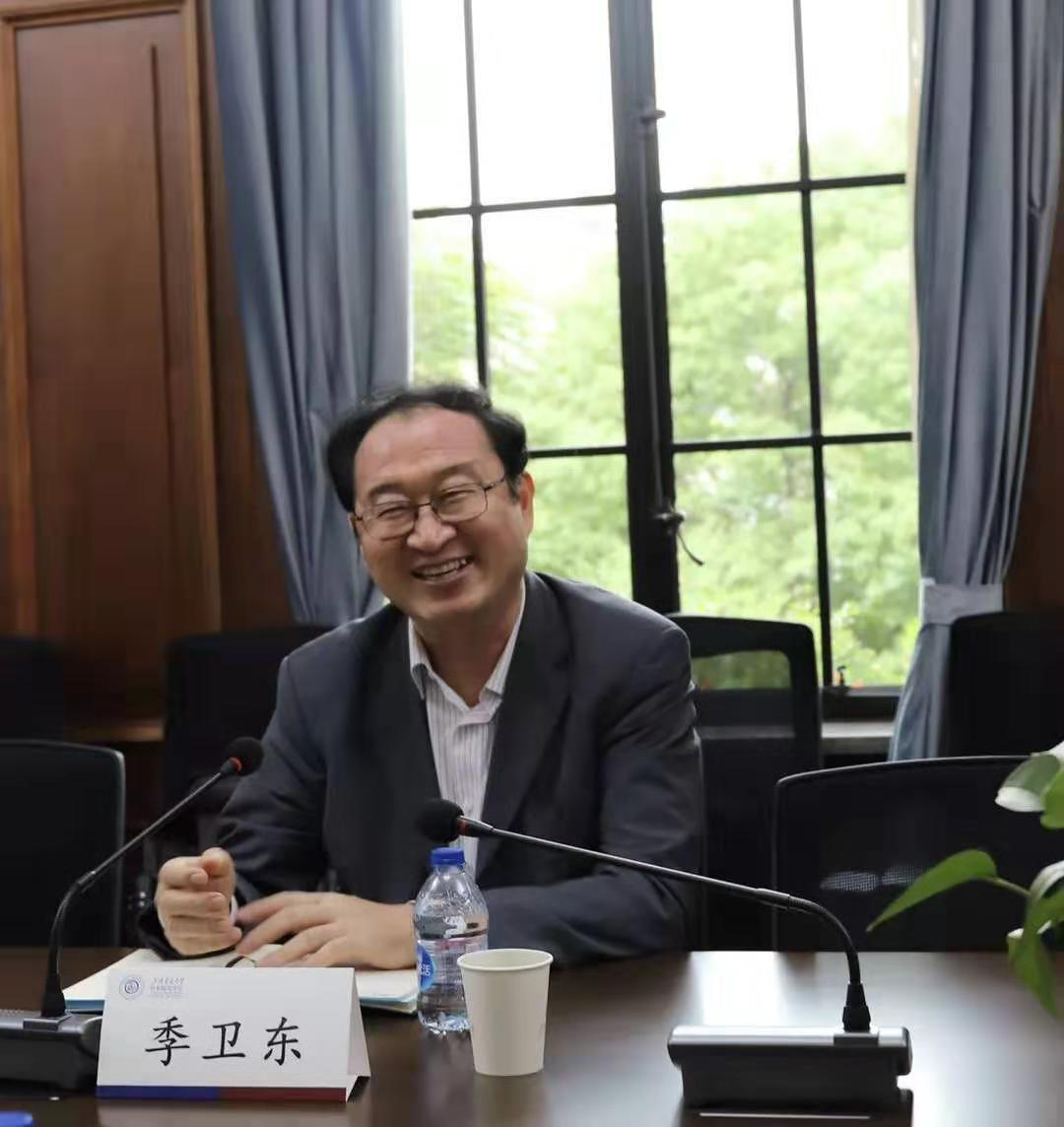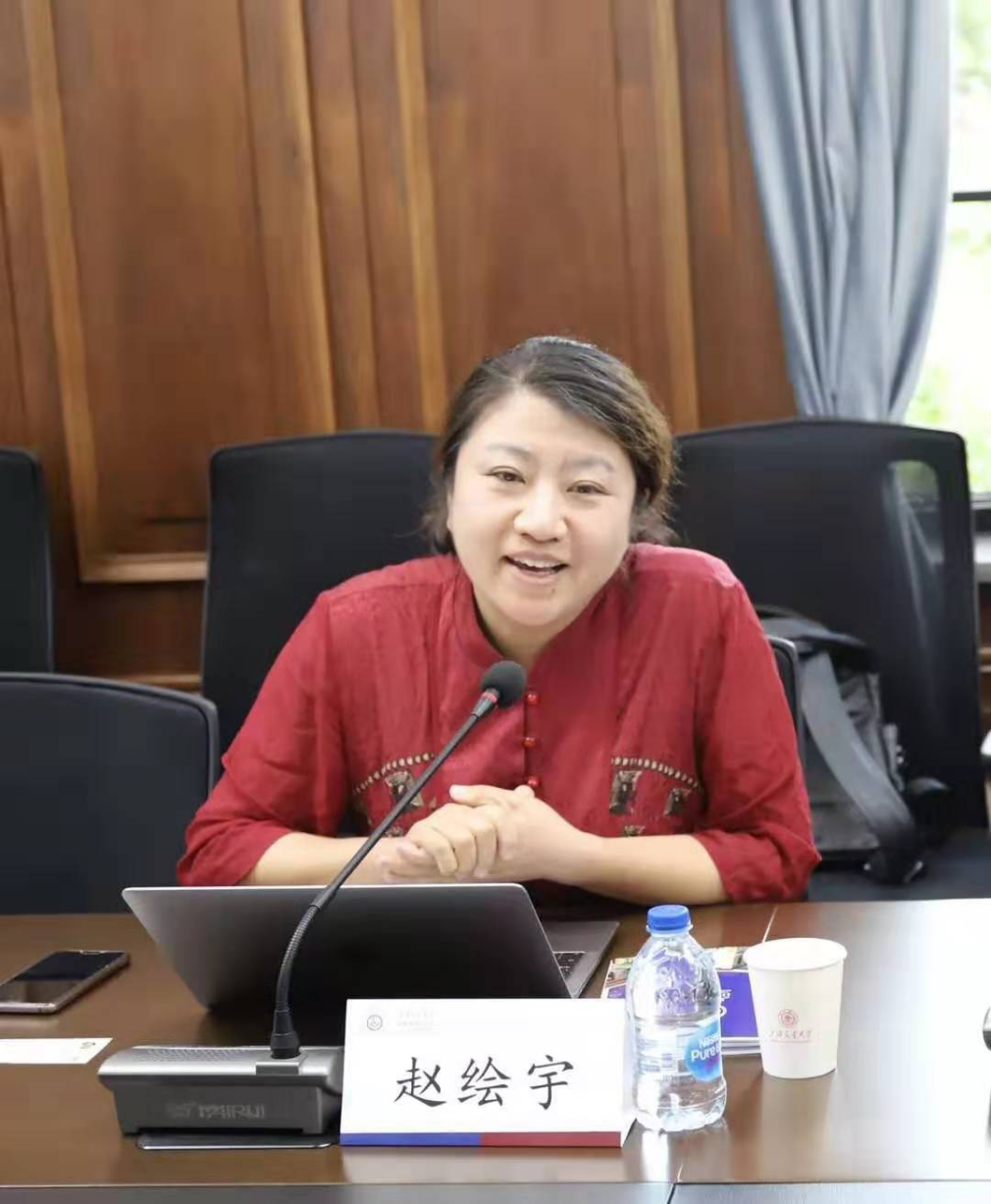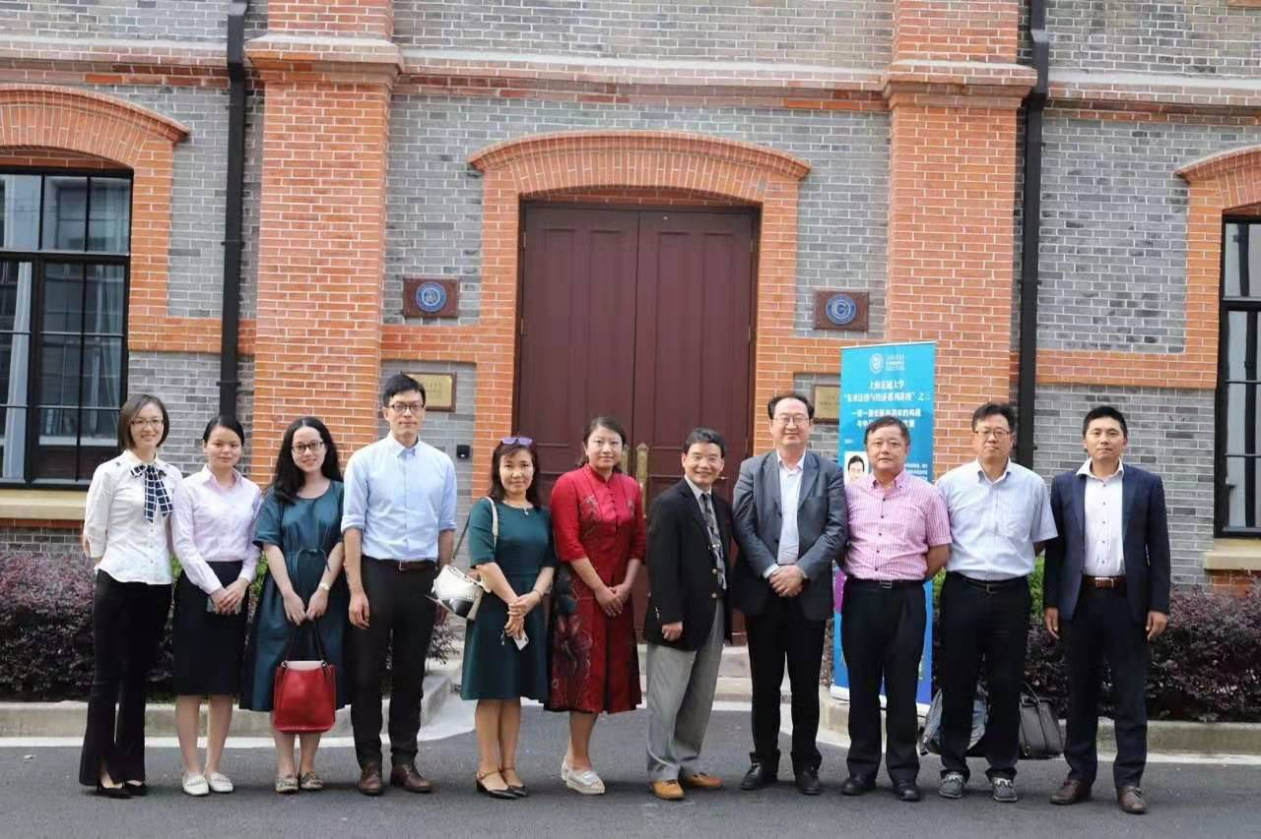On June 7, 2019, the third of the "East Asia Law and Economy Series Lectures" of Shanghai Jiaotong University, "Building a Low Carbon Community along the Belt and Road and China Japan Third Party Cooperation Strategy", was held at the Research Center of Jiaotong University. The speaker, Mr. Zhou Weisheng, is a professor in the Policy Science Department of Ritsumeikan University, Japan, and also serves as honorary president of the Confucius Institute of Ritsumeikan University and director of the Japan Research Center on the Belt and Road Initiative. Professor Ji Weidong, the chair of the lecture and director of the daily research center of Jiaotong University, welcomed and thanked Professor Zhou, and introduced his outstanding work in China Japan exchanges and cultural exchanges. Zhao Tuyu, an associate professor of Kaiyuan Law School of Shanghai Jiaotong University, was invited as the reviewer of the lecture.

Professor Zhou first said that he was very happy to hold a lecture at the Day Research Center of Jiaotong University. He pointed out that Japan's attitude towards the Belt and Road is complex, which includes both wait-and-see and criticism, as well as interest and expectation; At the same time, Japan plays an important role in the Belt and Road Initiative. Because Japan has many experiences in international cooperation that are worth referring to, including finance, ODA, environmental energy, etc., the concept of China Japan third-party cooperation came into being at the historic moment, and it is expected that it will be implemented in the future.

Subsequently, Professor Zhou gave a comprehensive introduction to the concept of the Belt and Road Low Carbon Community. He first divided the process of human society into five stages. At present, it has entered the fifth stage (Society 5.0), namely "smart society", which is characterized by more intelligent social, industrial, economic and technological systems and greater social effects at low cost. At present, all countries in the world are faced with the problem of how to adapt to this new society and take the lead. China's comprehensive national strength used to be among the top in the world, but because it failed to catch up with the trend of the first industrial revolution, its production capacity fell sharply, and it was not until the reform and opening up that it gradually returned to the right track. However, China's future is still full of internal and external troubles. The potential "internal worries" are corruption, the gap between the rich and the poor, ethnic problems, ecological damage and resource scarcity; Potential "foreign troubles" include external disputes and large-scale climate change. Faced with the pressure of economic, diplomatic, social and cultural issues, China, as a supporter, beneficiary and challenger of the current international order, has put forward the "Belt and Road Initiative", actively invited the world to connect with China, and also achieved China's rejuvenation. Professor Zhou believes that the Belt and Road, as an open, inclusive and transparent international cooperation platform, has or should have the characteristics of "global public goods". Specifically, "global public goods" have the following characteristics. First, non exclusivity: it means that the international initiative has no background of the Cold War, no ideological color, openness, inclusiveness, transparency, and does not exclude the participation of any country or region. Second, non competitiveness: not only countries along the Belt and Road, but also other countries (consumers) in the world can participate in and use (consumption) at the same time. Third, non exclusivity: it is proposed by China, but its opportunities and achievements are shared by the participating countries (not one country's unilateral prosperity doctrine). Fourth, non violence: do not show off force, do not seek military alliances, and do not pursue a non colonial policy. Develop peacefully, and adhere to the principle of common consultation, joint construction, and sharing. Fifth, sustainability: to make contributions to comprehensively solving poverty, public hazards and the earth's environmental problems, it belongs to a win-win cooperation mode of mutual benefit and complementarity, which is conducive to the realization of the United Nations Sustainable Development Goals (SDGs). To sum up, the goal of the Belt and Road Initiative is to solve the problems of poverty, public hazards and security, so that the entire human society can achieve mutual benefit, complementarity, multi win and symbiosis; The ultimate goal is to achieve global sustainable development.
So, how to achieve this ultimate goal? The answer given by Professor Zhou is to build a low-carbon community. Low carbon refers to minimizing the emission of carbon dioxide and other greenhouse gases. At present, Professor Zhou's research room is carrying out projects such as building a China Japan South Korea East Asia Low Carbon Community and a wide area circular economy circle, and studying how to design greenhouse gas emissions, waste recycling and treatment systems, and the national recycling system. At the same time, the two principles of building a community are benefit sharing and risk sharing. In addition, at present, the Belt and Road Initiative is facing some challenges and conflicts, and the so-called "clash of civilizations" is quietly rising. Faced with such a situation, China should learn from Japan's experience in absorbing Western civilization, seek international and regional cooperation in the Belt and Road Initiative, and avoid conflict rather than confrontation.
In addition, Professor Zhou also introduced the policy of the third party cooperation between China and Japan. He first proposed the formula of third-party cooperation, that is, third-party cooperation=market principle+benefit sharing. After that, it introduced the research on measuring the energy conservation and emission reduction potential of countries and regions along the Belt and Road, and proposed the "international cooperative enterprise" mode of "economic benefits+environmental benefits" sharing. Finally, Professor Zhou pointed out that China should promote China Japan third-party market cooperation and build a low-carbon energy community along the Belt and Road through a new "international enterprise approach" in which economic, energy, environment and society (3E+S) are coordinated and economic and environmental benefits are shared.

In the comments and Q&A session after the speech, Professor Zhao Tuyu, the reviewer, spoke highly of Professor Zhou's research. He believed that he not only analyzed China's history and mission under the historical framework, but also carried out a lot of research on topics such as building an energy conservation and emission reduction community, measuring the effectiveness of nuclear energy in East Asian countries, and how to achieve sustainable development through third-party cooperation, which provided a new and useful perspective for China's reform process. Later, the audience put forward to Professor Zhou how China cooperated with Japan to improve the level of energy conservation and emission reduction, and how to view the gap between the distribution and reuse of China's ELVs and developed countries. The lecture ended successfully in a warm atmosphere of discussion.
